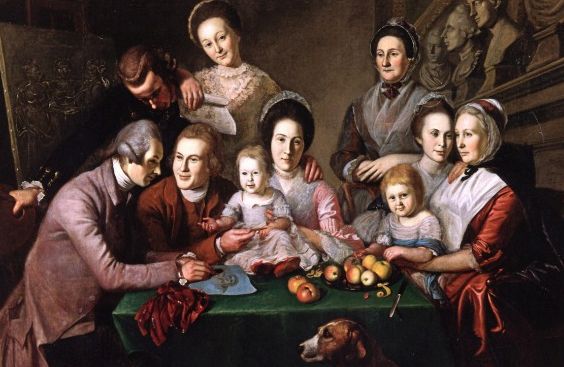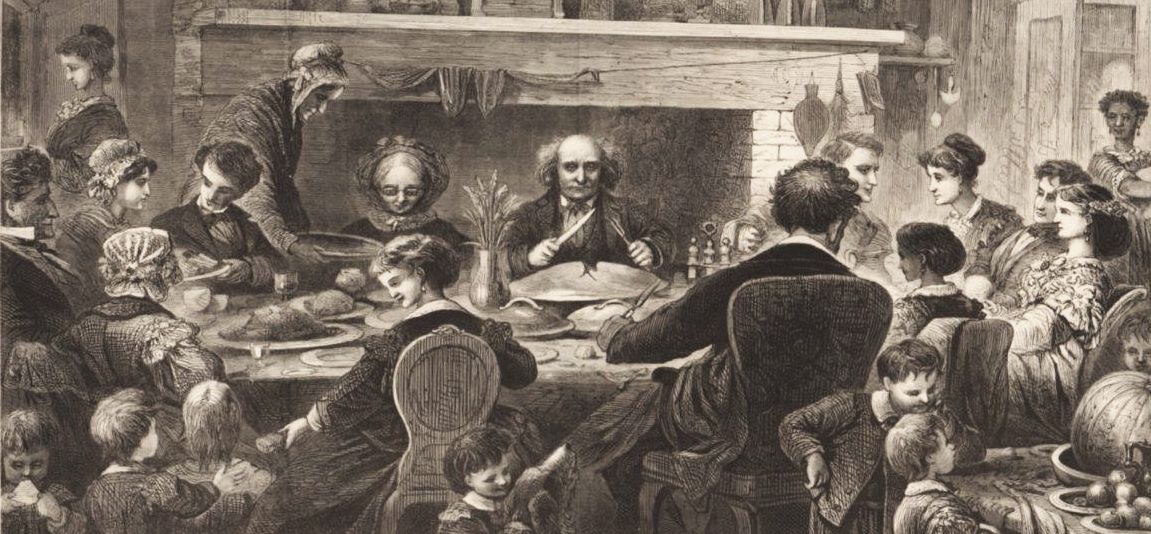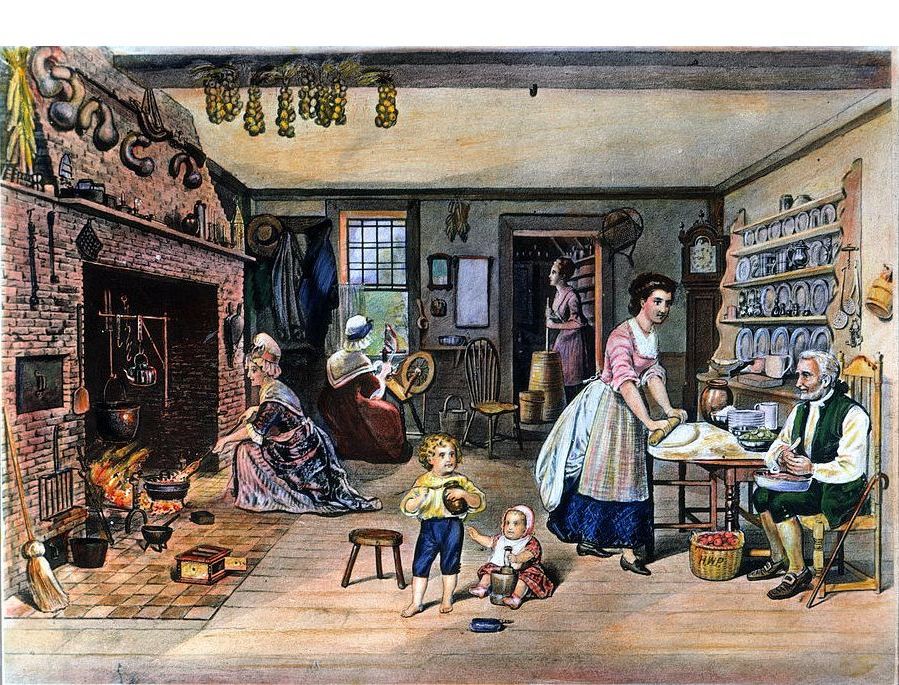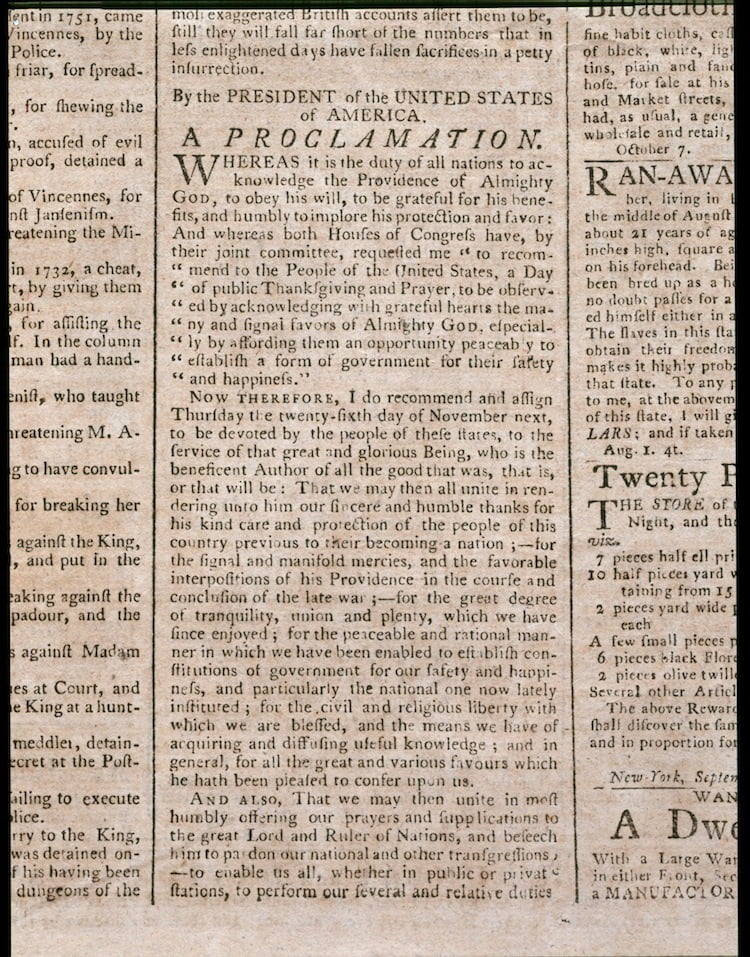Authors:
Historic Era: Era 3: Revolution and the New Nation (1754-1820s)
Historic Theme:
Subject:
November 2020 | Volume 65, Issue 7


Authors:
Historic Era: Era 3: Revolution and the New Nation (1754-1820s)
Historic Theme:
Subject:
November 2020 | Volume 65, Issue 7

Editor's Note: The nine Thanksgiving recipes linked to below are reprinted from The American Heritage Cookbook, which was published in eight editions from 1964 to the mid-1980s.
This menu for a New England Thanksgiving dinner is taken from a letter written in 1779 by Juliana Smith to her “Dear Cousin Betsey.” 
As Thanksgiving Day approached, Grandmother Smith, “who is sometimes a little desponding of Spirit as you well know, did her best to persuade us that it would be better to make it a Day of Fasting & Prayer in view of the Wickedness of our Friends & the Vileness of our Enemies, I am sure you can hear Grandmother say that and see her shake her cap border.... But my dear Father brought her to a more proper frame of Mind, so that by the time the Day came she was ready to enjoy it almost as well as Grandmother Worthington did, & she, you will remember, always sees the bright side."

While it would be difficult to set forth a single “traditional" Thanksgiving menu, the preparations related by Juliana Smith that went into this dinner were certainly typical of early New England Thanksgivings.
“This year it was Uncle Simeon's turn to have the dinner at his house, but of course we all helped them as they help us when it is our turn, & there is always enough for us all to do. All the baking of pies & cakes was done at our house & we had the big oven heated & filled twice each day for three days before it was all done. & everything was GOOD, though we did have to do without some things that ought to be used. Neither Love nor (paper) Money could buy Raisins, but our good red cherries dried without the pits, did almost as well & happily Uncle Simeon still had some spices in store. The tables were set in the Dining Hall and even that big room had no space to spare when we were all seated.”
Apparently roast beef was part of the traditional menu for this family, but “of course